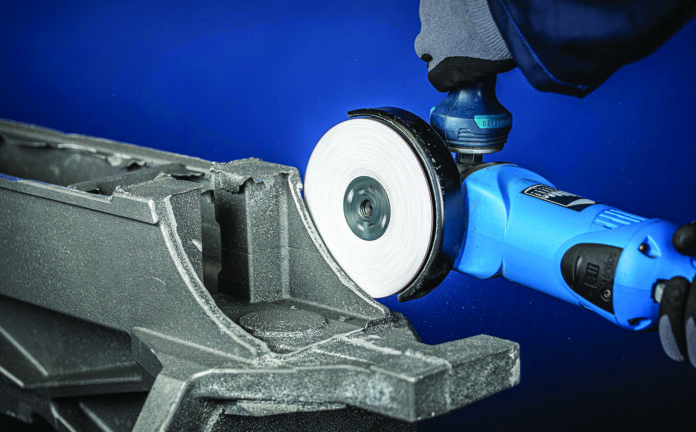Correct machine and consumable combinations offer benefits
WE are all looking for opportunities to reduce operational expenditure, but it does not pay to combine tool drives with incorrect or sub-standard abrasive consumables. This is according to Dennis Phillips, national sales manager for PFERD-South Africa, a leader in the manufacture, supply and distribution of abrasive tool solutions.
Purchasing decisions based only on price that ignore the quality or compatibility necessary for specific applications will reduce performance and increase operational costs.
Incompatibility increases the use of consumable and the additional noise, vibration and dust associated with sub-standard abrasives make working conditions hazardous for operators. The reverse is also true — buying sub-standard machines and pairing them with high-performance abrasives will also not deliver optimum results. A knock-on effect is wasted human resources because increased tool changes use up valuable time that could have been spent on production.
“Ensuring balance through correct combination delivers the best performance and achieves the desired results. Correct compatibilities improve productivity and cost-efficiencies, reduce consumable purchasing, ensure faster processing times, and increase operator safety and comfort, among other benefits. It is beneficial to consider the long-term requirements and to keep the overall process in mind when selecting consumables and tool drives,” said Phillips.
Case study
PFERD’s application specialists recently went to a site to assess unusually high usage of tungsten carbide burrs. The customer had replaced pneumatic tool drives and price played a major part in their decision-making.
“The new pneumatic tool drives were of the incorrect rotational speed for the tungsten carbide burrs being used. The machines were rated at 25 000 RPM whereas the consumables had an optimum operating speed/RPM of 16 000 RPM. This incorrect operating speed led to heat build-up, premature wear and in some instances product failure.
“We recommended a new tool drive with the correct operating RPM and a material specific burr, ideally suited for the material and application. There was an immediate difference in the handling, performance and comfort for the operators.”
Further in-production testing resulted in the customer changing over to the recommended machine and consumable combination. While initial set-up costs were higher, the customer noticed a significant overall cost reduction due to improved product service life and productivity. “The proof was in the performance and the balance sheet,” said Phillips.
PFERD’s application specialists and technical sales advisors are available to conduct site visits to assess a company’s applications and requirements and provide guidance on the machine and tool combination that will offer the most cost-effective solution.
“Training at the PFERD Academy can be arranged as training is key to achieving the operational performance that delivers cost savings on consumables and prolongs the machine’s service life,” said Phillips.



